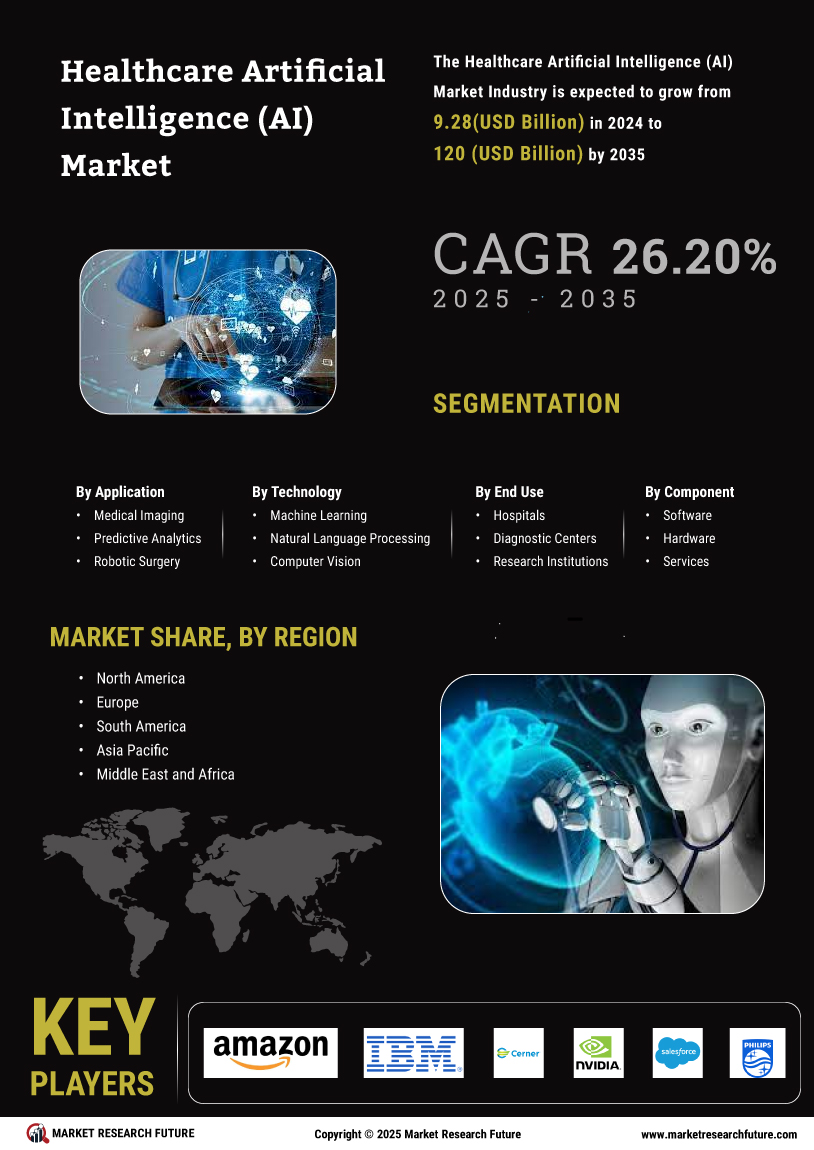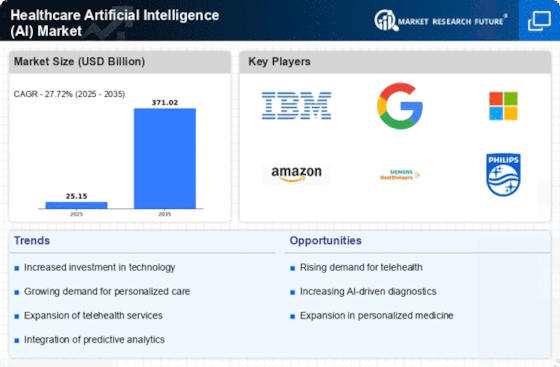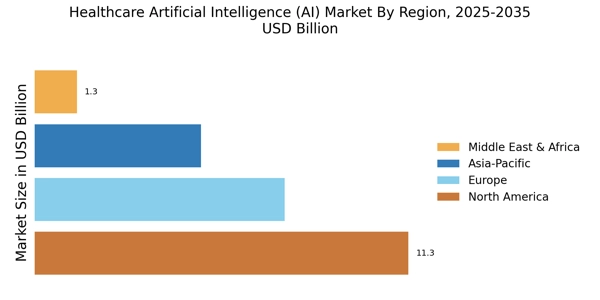Government Initiatives and Funding
Government initiatives play a pivotal role in shaping the healthcare artificial intelligence (ai) market. Various nations have launched strategic plans aimed at integrating AI into healthcare systems. For example, Saudi Arabia's Vision 2030 emphasizes the adoption of advanced technologies, including AI, to enhance healthcare delivery. The government has allocated substantial funding to support research and development in AI applications, which is expected to foster innovation and attract private sector investments. Additionally, the Qatar National Vision 2030 outlines similar objectives, focusing on improving healthcare services through technology. These initiatives not only enhance the infrastructure for AI in healthcare but also create a conducive environment for collaboration between public and private entities, thereby accelerating the growth of the healthcare AI market.
Growing Focus on Operational Efficiency
The healthcare artificial intelligence (ai) market is increasingly focused on enhancing operational efficiency within healthcare organizations. AI technologies are being deployed to streamline administrative tasks, manage patient flow, and optimize resource utilization. For example, hospitals in the UAE are implementing AI-driven scheduling systems that reduce patient wait times and improve overall service delivery. This focus on operational efficiency is expected to result in cost savings and improved patient experiences, which are crucial for the sustainability of healthcare systems in the region. The market for AI solutions aimed at operational efficiency is projected to grow, with estimates suggesting a potential increase of 15% in adoption rates over the next few years. This trend underscores the importance of AI in driving efficiency within the healthcare sector.
Integration of AI in Diagnostic Processes
The integration of AI in diagnostic processes is transforming the healthcare artificial intelligence (ai) market. AI algorithms are increasingly being utilized to analyze medical images, pathology reports, and genetic data, leading to faster and more accurate diagnoses. For instance, hospitals in Bahrain have begun employing AI tools to assist radiologists in identifying anomalies in imaging studies, which has reportedly improved diagnostic accuracy by up to 30%. The market for AI-driven diagnostic tools is expected to expand significantly, with projections indicating a growth rate of approximately 25% annually. This integration not only enhances clinical outcomes but also optimizes resource allocation within healthcare facilities, making it a critical driver for the healthcare AI market.
Advancements in Telemedicine and Remote Monitoring
Advancements in telemedicine and remote monitoring are significantly influencing the healthcare artificial intelligence (ai) market. The rise of AI-powered telehealth platforms enables healthcare providers to offer remote consultations and continuous patient monitoring, thereby improving access to care. Countries like Oman are investing in telemedicine initiatives that leverage AI to enhance patient outcomes, particularly in rural areas. The market for telemedicine solutions in the global market is anticipated to grow at a robust pace, with projections indicating a compound annual growth rate of around 30% over the next five years. This growth is likely to be fueled by the increasing acceptance of digital health solutions among patients and providers alike, further solidifying the role of AI in transforming healthcare delivery across the GCC.
Rising Demand for Personalized Healthcare Solutions
The Healthcare Artificial Intelligence Market is witnessing a notable shift towards personalized healthcare solutions. This trend is driven by an increasing patient expectation for tailored treatments and services. AI technologies enable healthcare providers to analyze vast amounts of patient data, leading to more accurate diagnoses and customized treatment plans. For instance, the UAE has implemented AI-driven platforms that assess individual health profiles, thereby enhancing patient engagement and satisfaction. The market for personalized medicine in the global market is projected to grow significantly, with estimates suggesting a compound annual growth rate of over 20% in the coming years. This rising demand for personalized solutions is likely to propel investments in AI technologies, further solidifying the GCC's position in the global healthcare landscape.

















